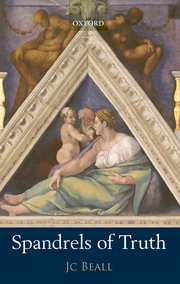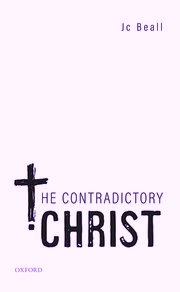|

Jc Beall as a child
Strangely, traditional places in the USA like Princeton, where exceptional philosophers like John P. Burgess and Hans Halverson work, are places where paraconsistency is known very (very) well but, alas, also remains a very radical thing — stuff for the heretics, as Burgess might put it. I doubt that Princeton is unique in this way, at least among traditional (and traditionally very strong) universities in the world. (Even Notre Dame, where I work, sees paraconsistency as an important development but wildly radical and last-ditch stuff.)
I think that this is unfortunate. By my lights, part of the problem is the wake of old debates, going back to Quine (at the very latest). Somehow, classical logic (i.e., the so-called classical account of logical consequence) became the mainstream account of logical consequence, and now folks talk of “changing logic” and so on. But classical logic (at the hands of folks involving Frege, Russell and the like) is just the entailment behavior of logical vocabulary *in standard mathematics* (i.e., the account of how logical vocabulary behaves in all true mathematical theories — apologies to Chris Mortensen, Zach Weber and others). But why on earth think that that’s how the logical vocabulary behaves in *all* true theories of reality — not just the mathematical ones, but *all* of them? I see no reason to think as much. But somehow this fairly obvious point is lost to the steady beat of the classical-logic drum.
There’s another factor that feeds the current status of paraconsistent logic (and nonclassical logic generally) as “deviant.” Consider the “controversial” question: Should we accept a nonclassical account of logic? How to answer? Obviously, the only way to answer is to *first* fix on an answer to what *logic* is. But here’s where we’ve let things get mushy. With all good intentions the climate in philosophy of logic is to count everything that remotely resembles a deductive relation as “logic.” And so we find ourselves battling the effects of our own “sophistication.” After all, if every relation that remotely resembles a deductive relation is “logic,” well, the question over whether *logic* is nonclassical will be seen as merely terminological — leaving the mainstream account to persist as the standard.
One major challenge, then, is to shake us back into answering basic questions. What is *logic* when we debate whether logic is nonclassical (or just paraconsistent? paracomplete? whathaveyou?)? Why does it matter? Why does logic, so understood, need to be understood by truth-seeking philosophers (of any speciality)?
For what it’s worth, the direction of answer that interests me is one that should strike us all as familiar. LOGIC, on a very familiar and traditional usage, is involved in *all* true theories. Why? How? Well, logical consequence is the formal entailment (or deductive) relation governing the “logical vocabulary,” which, traditionally, is the sparse topic-neutral vocabulary that makes up standard first-order logical vocabulary (sans identity, which is far from topic-neutral). Since that vocabulary is in all true theories (be they about tractors, cats, gods, chemicals, peanuts, cell phones, whatever), and our job as truth-seeking philosophers is to systematically pursue complete true theories, we all need to know how logical consequence works — and then build our theory-specific consequence relations (governing the theory-specific vocabulary) on top of that. On that (familiar and traditional) perspective, the debate over nonclassical logic is the debate over whether the “universal” consequence relation governing logical vocabulary in all true theories is nonclassical. And that’s a debate worth having. (And I’ll bet that the winning relation is paraconsistent. I just don’t know the odds at the moment.)
There’s a little (OK, a great deal) more to say about all that but, alas, no more room to say it. Such is the pattern of life.
|


